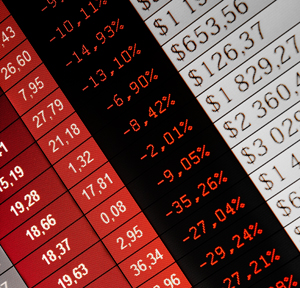Strategy
Investors: Keep Cool In Times Of Turmoil, Say Wealth Managers

Generally speaking, wealth managers had one key message for investors amid yesterday's global market rout: don't get cold feet.
As global equities yesterday slid into a rout that saw an
estimated $4 trillion shaved off stock markets, wealth managers
urged investors to remain calm, suggesting normalisation will
come sooner rather than later.
Across the world, prices were hit with heavy blows and many major
indexes took large losses. Germany’s DAX, France’s CAC 40, the
UK’s FTSE 100 and the broad Euro Stoxx 50 all dropped by more
than 3 per cent on opening. By close, large indexes on the
continent were still down between 2 and 3 per cent.
The European dip followed a beating taken by US stocks on Monday.
The Dow Jones industrial average fell by nearly 1,200 points, a
record single-day drop in terms of points. The S&P 500 and
the Nasdaq tumbled 4.1 per cent and 3.8 per cent,
respectively.
In Asia, the story was equally as bleak.
Japan’s Nikkei Stock Average was on course for its biggest
one-day point drop since 1990, but instead closed down 4.7 per
cent, its largest decline since the UK’s vote to divorce the
European Union. In Tokyo, the benchmark Topix index fell 6.2 per
cent, the biggest drop in 19 months with all sectors in the red.
Sydney’s S&P/ASX 200 was down 3.7 per cent, and Macquarie,
the Australian bank, saw its shares slide as much as 5.7 per cent
despite projecting annual profits would rise 10 per cent
year-on-year.
Such mass sell-offs were said to have been triggered by concerns
that US inflation could force the Federal Reserve to tighten
monetary policy faster than had initially been forecast. Others
had suggested a market correction was long overdue, as stocks,
generally speaking, seem overvalued in many cases when the
fundamentals are examined.
But although markets are still turbulent, wealth managers have
urged investors to keep a level head, with some suggesting to buy
the dips when possible.
“It feels a bit unpleasant, but our message is: don’t panic,”
said Lukas Daadler, Robeco’s chief investment officer. “One of
the main characteristics of this sell-off is that it is equities
– normally you would expect all risky assets including high yield
bonds and emerging market debt to also sell off, but losses in
these asset classes have been small.”
He continued: “As such, this seems to indicate that this is much
more of a technical correction, especially in stocks that were
continuing to go up and up without any reason. They had become
rather overbought, so at some point you are going to get a
correction.”
Monica Defend, head of strategy at Amundi, Europe’s largest asset
manager, said that “while for the time being we remain cautious,
we will be ready to actively exploit opportunities which could be
brought by this wave of volatility resurgence”.
At UK private bank Coutts, Sven Balzer, head of investment
strategy, suggested the market dips showed “little more” than a
“much needed market correction after a long period of strong
performance”. He added that the global economic outlook remains
strong and “there are no signs of a US recession, which usually
heralds a wider sell-off”. He and his firm are also “ready to
take advantage of any opportunities that may arise,” he
said.
Guy Foster, head of research at Brewin Dolphin, said while the
quasi-crash “may feel traumatic, it was not in many ways
surprising”.
Foster said: “The real challenge for investors after an
environment of very low volatility is that they may be unnerved
as it ‘normalises’. More volatility means more opportunity for
active investors with strong nerves. We see the recent sell
off as validating rather than challenging that assessment.
“We expected volatility to pick up, as central bankers, who had
hitherto been smoothing the path for investors with unnatural
amounts of liquidity, have been trying to quietly withdraw their
support.
“Interest rates are rising at a time when the economy needs money
for the increased corporate investment activity which is taking
place. That means there won’t be the constant flow of money into
the equity market which has been supporting prices over the last
couple of years."
